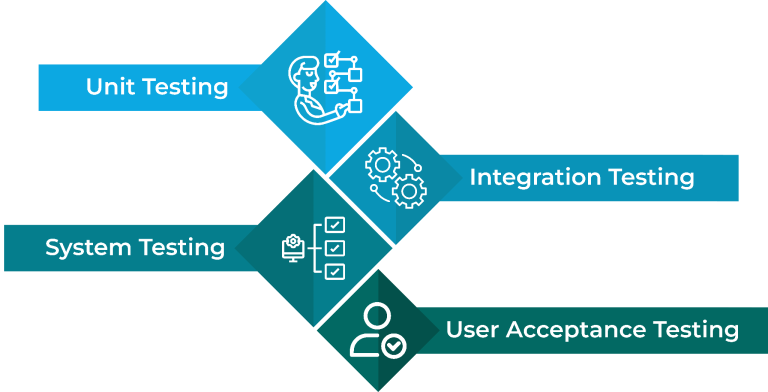SAP, ServiceNow, and Salesforce Cloud Service Consulting Company | LMTEQ
- Home
- SAP
- Salesforce
- ServiceNow
- Snowflake
- Microsoft
- NetSuite
- Industries
- Company
- Resources
- Contact
ServiceNow is a cloud-based platform that provides a range of IT services management (ITSM) solutions. ServiceNow testing is widely used by organizations to manage their IT services and operations. It is an essential part of the platform’s development process. In this blog, we will discuss the importance and how it can be done effectively.

ServiceNow test management is crucial to ensure that the platform is functioning correctly and meeting the needs of the organization. It helps to identify any defects or issues that may arise during the development process. ServiceNow automated test framework also ensures that the platform is secure and reliable, which is essential for organizations that rely on it for their IT services.

There are several types of testing that can be performed on the ServiceNow platform. These include:
- Unit Testing: This involves testing individual components of the platform to ensure that they are functioning correctly.
- Integration Testing: This involves testing how different components of the platform work together.
- System Testing: This involves testing the entire system to ensure that it is functioning correctly.
- User Acceptance Testing: This involves testing the platform from the end user’s perspective to ensure that it meets their needs.

ServiceNow automated testing can be done manually or using automated testing tools. Manual testing involves testing the platform manually, while automated testing involves using tools to automate the testing process. The ServiceNow platform provides an Automated Test Framework (ATF) that can be used to automate testing.
The ATF allows users to create and run automated tests on the platform. It provides a range of features, including the ability to create test cases, test suites, and test steps. The ATF also provides reporting and analytics features that allow users to track the progress of their tests and identify any issues that may arise.
Best practices for testing in ServiceNow
Some best practices for testing in ServiceNow include creating test scripts or test cases before performing an upgrade, using the Automated Test Framework feature to avoid manually testing and checking the test scripts, addressing resource requirements and fixing issues from previous upgrades, managing potential issues or conflicts, and testing and validating new functionality. It is also recommended to read the release notes and feature upgrades, clone the development and test instances after upgrading production, and review the ServiceNow release notes to ensure that any changes will not impact the organization’s instance. Additionally, repeated execution testing that requires the repeated execution of a task is best automated
-
Test Planning and Design:
Before initiating testing, it is crucial to establish a comprehensive test plan that outlines testing objectives, scope, and timelines. Identify the key functionalities, modules, and integrations to be tested. Develop test cases that cover various scenarios and ensure adequate test coverage.
-
Functional Testing:
This type of testing focuses on verifying individual functions and features of the ServiceNow platform. It includes testing modules, applications, forms, workflows, and integrations. Functional testing helps identify issues such as incorrect configurations, broken workflows, and data inconsistencies.
-
Integration Testing:
ServiceNow integrates with numerous third-party applications, databases, and systems. Integration testing validates the smooth functioning of these integrations, ensuring data integrity, proper data exchange, and interoperability. It involves testing API calls, data synchronization, event triggers, and error handling.
-
Performance Testing:
ServiceNow implementations often handle a large volume of user requests and data processing. Performance testing evaluates system response times, scalability, and stability under different load conditions. By simulating real-world scenarios, organizations can identify performance bottlenecks, optimize configurations, and ensure optimal platform performance.
-
Security Testing:
Given the sensitive nature of the data handled by ServiceNow, security testing is critical. It involves assessing access controls, authentication mechanisms, data encryption, vulnerability scanning, and penetration testing. By conducting comprehensive security testing, organizations can identify and rectify security vulnerabilities before they are exploited.
-
Regression Testing:
As organizations make changes or updates to their ServiceNow configurations, it is essential to perform regression testing to ensure that existing functionalities and integrations remain unaffected. Regression testing verifies that new changes do not introduce any unintended side effects or break existing functionalities.
ServiceNow testing is an essential part of the platform’s development process. It helps to ensure that the platform is functioning correctly and meeting the needs of the organization. Several types of testing can be performed on the platform, including unit testing, integration testing, system testing, and user acceptance testing. Testing can be done manually or using automated testing tools such as the Automated Test Framework. LMTEQ provides effective testing, organizations can ensure that their ServiceNow platform is secure, reliable, and meets their needs.

